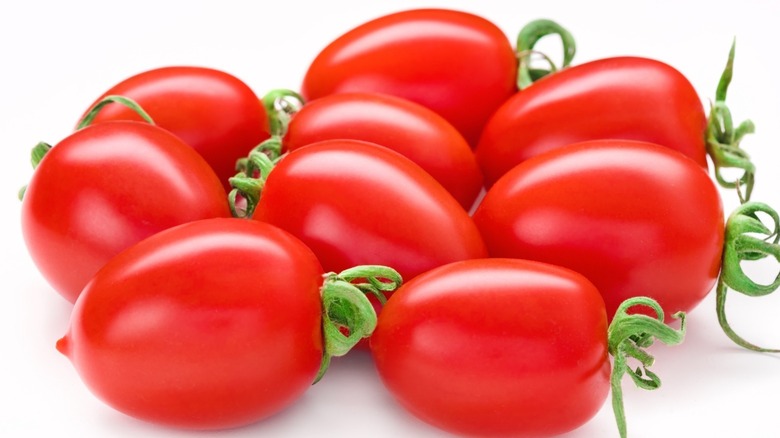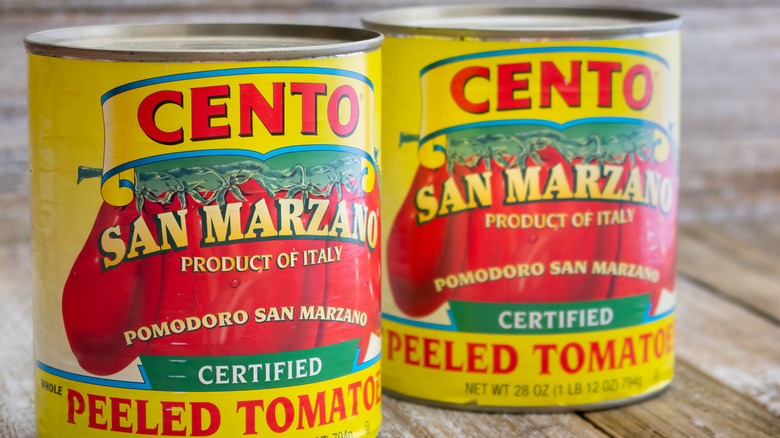Why You'll Never Find Pureed San Marzano Tomatoes At The Grocery Store
A rose by another name might smell as sweet, but tomatoes are a different story. If you've ever had an authentic San Marzano (which, though once only grown in a small region of Italy between Naples and Salerno, are now harvested in parts of California and also sold as seeds), you know that there's no replacing the real thing. Unlike your standard plum tomato, the San Marzano is long, delicately sweet and tangy, low in acid, and contains relatively few seeds, making it great for sauces. But just like any precious item — be it a food product or a designer bag — overpriced impostors are everywhere. Luckily, the canned product's popularity has given way to all sorts of tips for parsing the real from the fake.
"Terroir, mode of harvesting, and preparation and processing of the tomato for canning are key factors in delivering an authentic San Marzano tomato," Food Republic explains, pointing out that the coveted variety is only sold whole or filleted — never blitzed up. This isn't to say there's never a time or place for a can of pureed tomatoes, but if that's what you're after, there's no need to overpay for a can that claims to be fancier than it is.
Here's how to identify a can of real San Marzano tomatoes.
Read the small print
In addition to noting the preparation (The Kitchn says anything labeled "puree," "chopped," "diced," "sauce," or "organic" is not a San Marzano), you'll also want to look for a specific label. Real San Marzanos "[carry] a 'denominazione di origine protetta' ('D.O.P.'), or a protected designation of origin," writes Food Republic, explaining that the moniker is "a kind of legal protection to ensure that certain food products have specific, unique characteristics wholly dependent on the territory in which they are produced."
If you find yourself at the grocery store without your reading glasses, there are also a few bonafide brands you can trust. Epicurious tasted a whole bunch of canned tomato varieties and shouted out Simpson Imports San Marzano, Cento (pictured above), and Gustarosso.
That said, just because Ina Garten swears by San Marzanos doesn't mean they're everyone's favorite. In fact, the tasters in the Epicurious study chose Red Pack, a brand based in the U.S., over its D.O.P.-designated counterparts, and authentic San Marzanos didn't make the cut in Serious Eats' top-four brands of canned tomatoes. If you do decide to seek them out, however, now you know how to spot the phony stuff.

